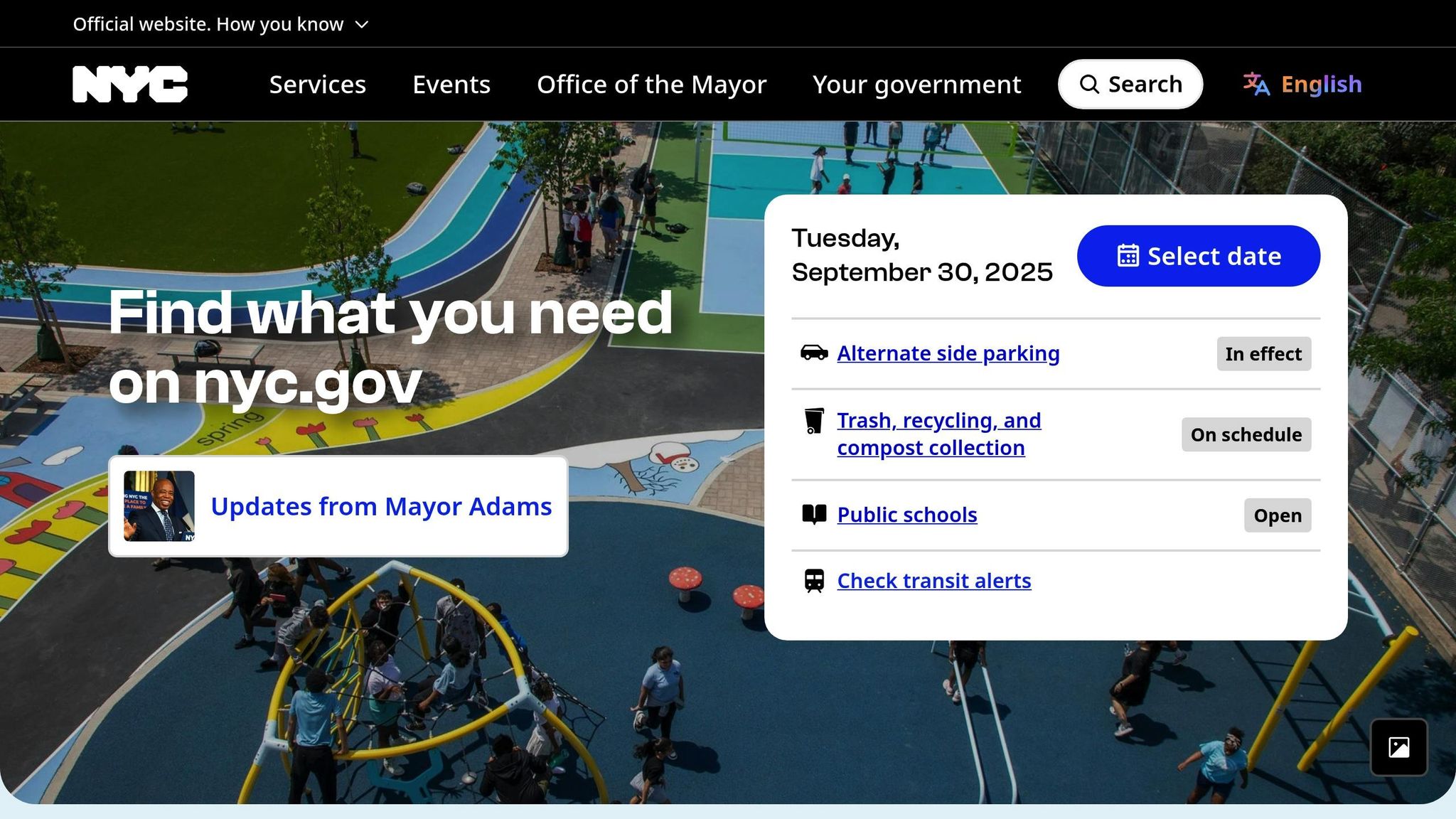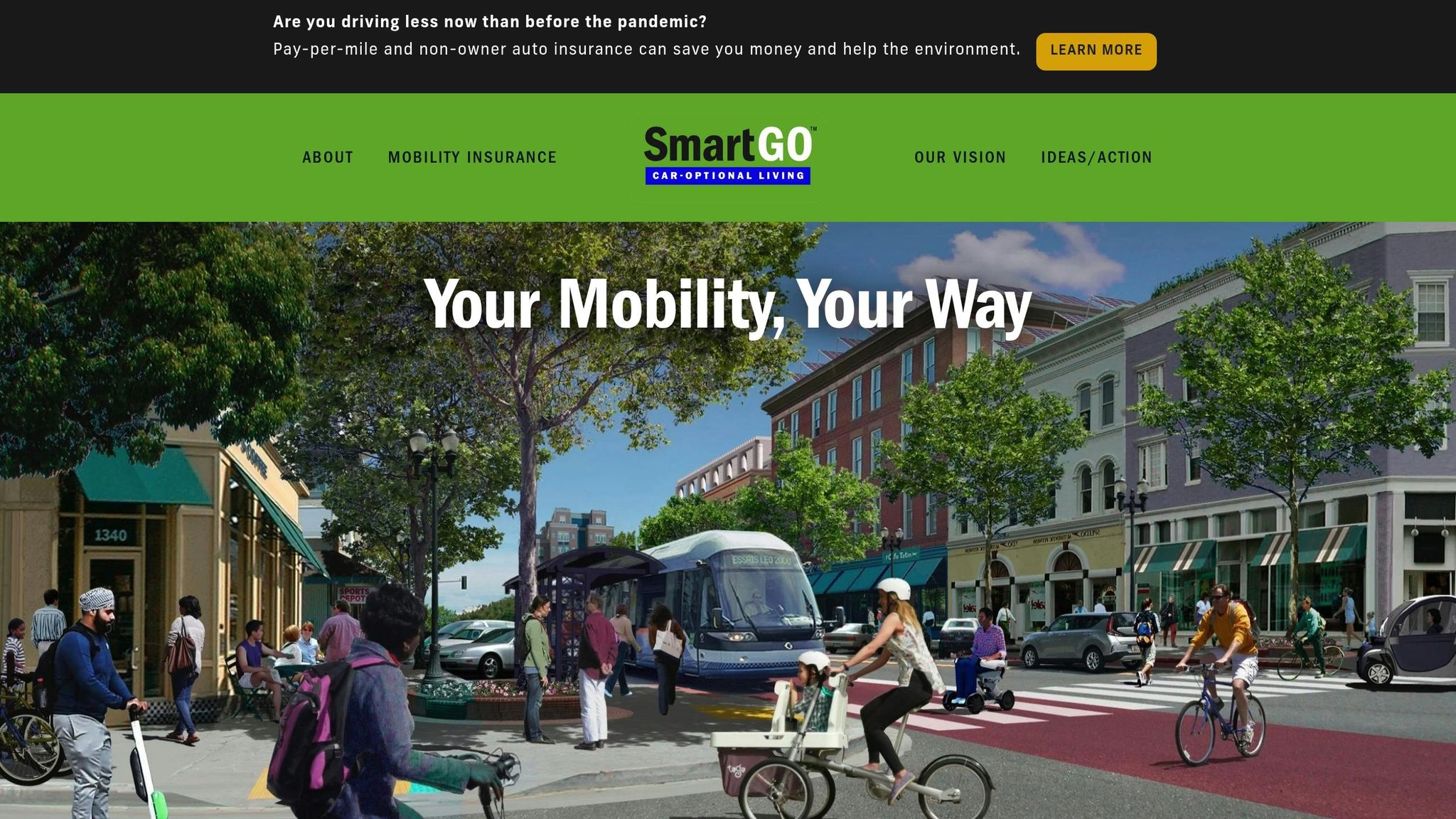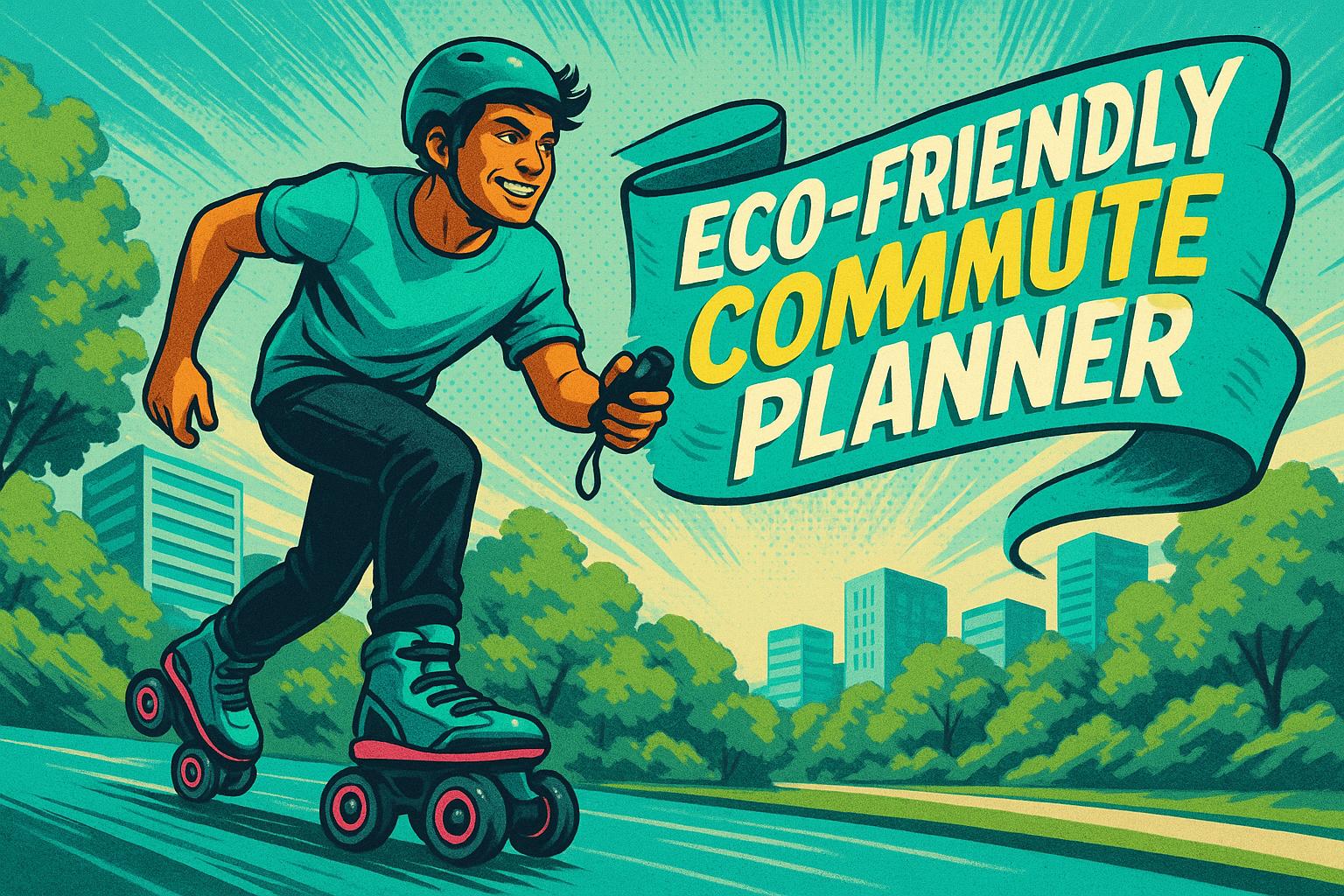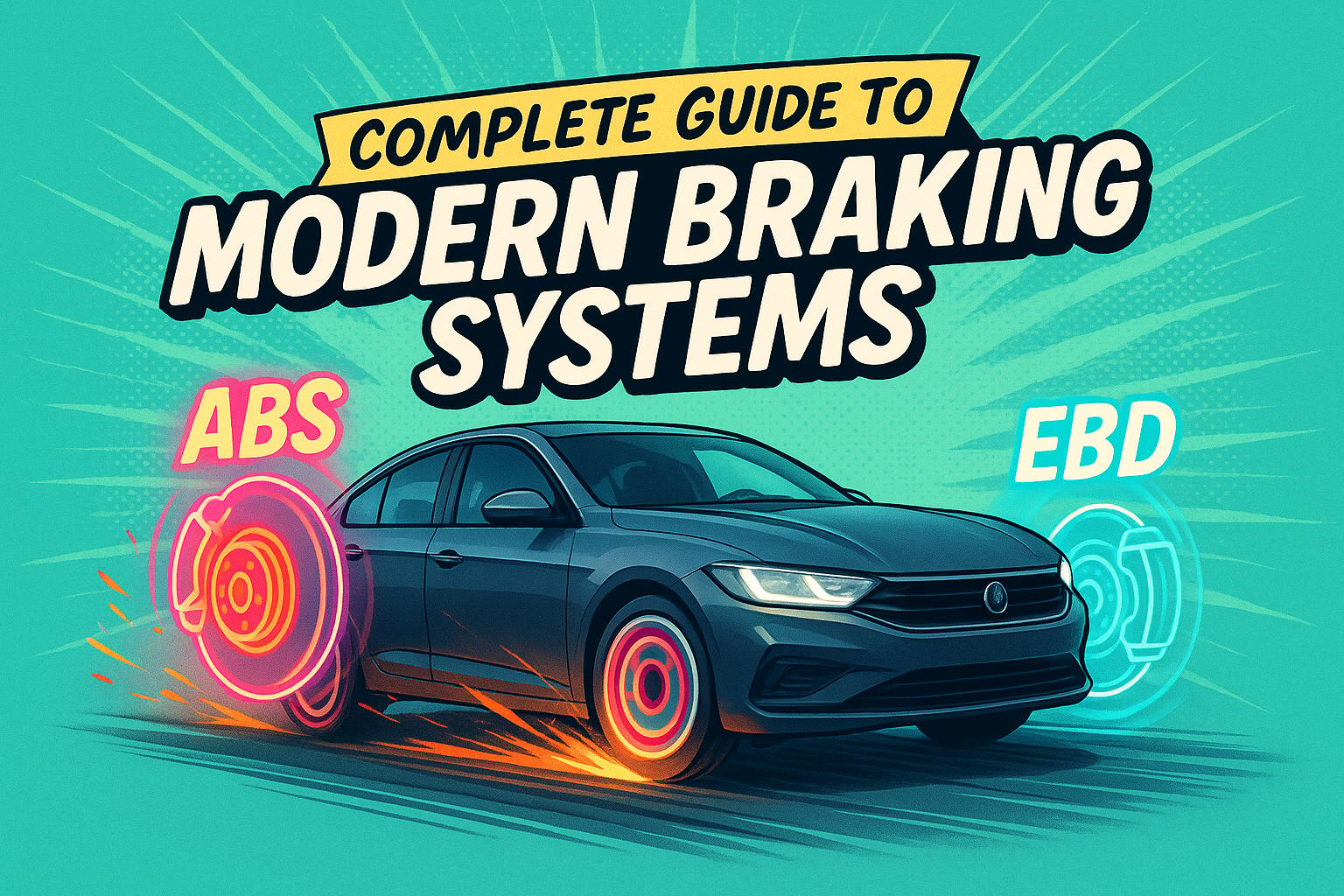As cities around the world grapple with the challenges of climate change, traffic congestion, and outdated infrastructure, innovative solutions in urban mobility have become more critical than ever. In a recent episode of the Future of Ground Transportation Podcast, Daniel Perez sat down with Michael Replogo, President of Smart Go and a pioneer in sustainable transportation, to discuss transformative policies and technologies shaping the future of urban transportation. Through his decades of experience, Replogo sheds light on how cities can implement innovative strategies to improve public transit, reduce carbon emissions, and empower individuals with better commuting choices.
The Evolution of Urban Transportation: Michael Replogo’s Journey
Michael Replogo's journey into the world of sustainable transportation began during his childhood in urban and suburban areas. His early reliance on bicycles and trolleys gave way to an understanding of the limitations posed by car-dependent infrastructure. This inspired him to advocate for smarter city planning and transportation solutions throughout his career.
Replogo’s experience spans several decades, including his role as New York City’s Deputy Transportation Commissioner. During his tenure, he spearheaded impactful initiatives such as expanding bike-sharing programs, launching congestion pricing, and fast-tracking outdoor dining permits during the COVID-19 pandemic. His work demonstrates how government collaboration, public-private partnerships, and innovative policies can revolutionize urban transportation.
Key Lessons Learned from New York City’s Transportation Transformation

Replogo’s leadership in New York City offered him valuable insights into improving mobility systems. He highlighted the following lessons that cities can adopt to tackle similar challenges:
1. Streamlining Bureaucracy for Rapid Innovation
During the pandemic, New York City transformed its permitting process for outdoor dining, saving thousands of jobs. By simplifying regulations and relying on self-certification, the city fast-tracked the implementation of "streeteries." This decentralized approach allowed restaurants to adapt quickly and thrive despite the crisis.
Takeaway: Governments must reduce bureaucratic hurdles to enable quick, bottom-up solutions that benefit citizens and businesses.
2. The Power of Public-Private Partnerships
Under Replogo’s guidance, the Citi Bike program grew from 6,000 shared bicycles to nearly 40,000, becoming one of the largest bike-share systems in the world. This success was fueled by private investment with clear public oversight, offering a sustainable model for collaboration.
Takeaway: Public-private partnerships can deliver scalable, cost-efficient solutions for urban mobility, including bike-sharing systems and EV charging infrastructure.
3. Redefining Street Space
Replogo emphasized that expanding road capacity does little to reduce traffic. Instead, cities should focus on repurposing existing street space through pricing mechanisms, better designs, and traffic management to promote walking, biking, and public transit.
Takeaway: Livable cities prioritize transportation choices over car dependency.
Smart Go: Empowering Smarter Consumer Choices

As President of Smart Go, a nonprofit organization, Replogo continues to advocate for innovative transportation policies. Smart Go emphasizes travel demand management - adjusting incentives to reduce traffic and promote sustainable travel behavior. One groundbreaking initiative involves mileage-based car insurance, which aligns costs with usage.
How Mileage-Based Insurance Works
Mileage-based car insurance replaces fixed premiums with variable rates based on miles driven. By turning a fixed expense into a usage-based one, individuals are incentivized to drive less and reduce emissions. Studies have shown that drivers with mileage-based policies reduce their miles traveled by 10% on average.
Impact: This model provides environmental and financial benefits while helping states achieve greenhouse gas reduction goals. However, widespread adoption faces regulatory and marketing challenges, as each state sets its own car insurance rules.
Overcoming Challenges in Sustainable Mobility
While innovative solutions like mileage-based insurance and bike-sharing programs hold promise, implementing them at scale requires overcoming several obstacles:
1. Regulatory Resistance
Many agencies struggle to adapt to new market-driven approaches. For example, California’s goal to offset increased traffic emissions with smarter incentives is groundbreaking but requires political will and education to succeed.
2. Underfunded Public Transit
Replogo warns of the looming "fiscal cliff" for public transportation agencies, which could lead to service cuts at a time when reliable transit is crucial. Long-term investment is needed to sustain and expand public transit systems.
3. Public Acceptance of New Technologies
Autonomous vehicles (AVs) and other cutting-edge solutions have faced public skepticism due to safety concerns. Replogo notes that while AVs are commercially operational in some cities, their readiness for complex traffic scenarios remains a challenge.
The Role of Technology and Innovation in Mobility
Replogo envisions a future where cities embrace technological advancements and policy innovations to create sustainable, efficient transportation networks. Here are some key trends he highlighted:
1. Bus Rapid Transit (BRT)
BRT systems, which designate exclusive lanes for buses, are a cost-effective alternative to rail projects. They offer faster, more reliable transit, provided cities have the political will to allocate street space.
2. Integrated Fare Systems
Connecting different modes of transport - buses, trains, bikes, and ride-sharing - through unified fare systems could make transit more accessible and user-friendly. Integration with services like Uber and Lyft can bridge the "last-mile" gap.
3. Bicycle-Friendly Transit Hubs
In contrast to car-dominated park-and-ride lots, Replogo advocates for bicycle access and parking at public transit hubs, as seen in European and Asian cities.
4. Electric Vehicle (EV) Infrastructure
Replogo stresses the urgent need for widespread EV charging infrastructure, especially Level 2 chargers for overnight and workplace charging. He also highlights promising innovations like "user-supplied cord" models being piloted in cities like Boston.
Autonomous Vehicles and Flying Cars: A Cautious Optimism
Replogo shared his firsthand experience riding an autonomous vehicle in San Francisco, describing it as both exciting and concerning. While AVs operate well under ideal conditions, edge cases like construction zones and adverse weather still pose challenges. Additionally, incidents involving AVs and pedestrians highlight the need for stricter oversight.
Future Outlook: Although AVs are already rolling out in select cities, their widespread adoption will depend on improved safety, public trust, and regulatory frameworks. Flying cars remain even further from practical implementation, though they continue to capture the public imagination.
Key Takeaways
- Streamline Processes: Simplified regulations can enable swift innovation, as seen in NYC’s outdoor dining and Citi Bike programs.
- Leverage Public-Private Partnerships: Collaboration with private entities can expand transportation systems efficiently.
- Focus on Choices, Not Roads: Reducing car dependency requires better transportation options, not expanded roadways.
- Adopt Smart Incentives: Mileage-based car insurance and similar policies can reduce traffic and emissions.
- Invest in Transit: Expanding bus rapid transit and integrating fare systems make transit more accessible.
- Build EV Infrastructure: Scalable EV charging solutions are essential for electrifying transportation.
- Embrace Cautious Innovation: Autonomous vehicles hold promise but need regulatory oversight and public trust.
Conclusion
Michael Replogo’s decades of experience underscore the importance of innovative policies, technology, and partnerships in transforming urban mobility. Whether through smarter incentives like mileage-based insurance, expanded bike-sharing programs, or EV infrastructure, cities have the tools to create more sustainable and livable environments. However, success depends on political will, regulatory flexibility, and a commitment to equitable solutions.
As cities evolve, the visionaries like Replogo remind us that the future of transportation isn’t just about technology - it’s about rethinking systems to prioritize people, communities, and the planet.
Source: "The Future of Urban Mobility: A Deep Dive with a Former NYC DOT Commissioner : TFGT EP54" - DPV Transportation Worldwide, YouTube, Sep 3, 2025 - https://www.youtube.com/watch?v=AmuZqKUTusk
Use: Embedded for reference. Brief quotes used for commentary/review.




Leave a comment
All comments are moderated before being published.
This site is protected by hCaptcha and the hCaptcha Privacy Policy and Terms of Service apply.